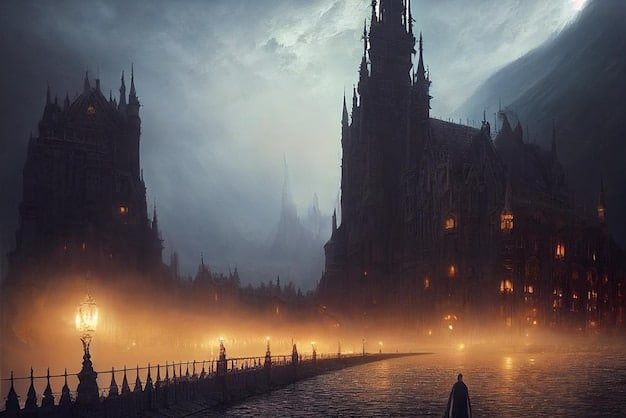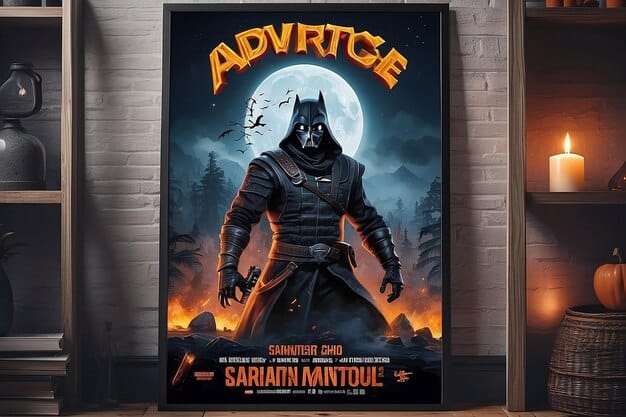Netflix’s ‘The Witcher’ Season 3: Viewership Analysis & Future Outlook

Netflix’s ‘The Witcher’ Season 3 viewership experienced a notable decline compared to previous seasons, sparking discussions about the show’s future and potential changes needed to recapture audience interest, influenced by factors like plot divergence and character exits.
The highly anticipated third season of Netflix’s ‘The Witcher’ Season 3 Viewership: Analyzing the Numbers and Future Implications‘ has been released, and while fans eagerly dived back into the world of Geralt, Yennefer, and Ciri, the viewership numbers tell a story that demands a closer look. Was it a success? What do the figures suggest about the production?
Analyzing Netflix’s ‘The Witcher’ Season 3 Viewership
The first part of Season 3 debuted to high anticipation, quickly climbing to the top of Netflix’s charts. However, early numbers suggested a slight dip compared to Season 2. The question everyone is asking is why?
Let’s delve deeper into what the numbers are telling us and explore the possible reasons behind these trends.
Initial Viewership Numbers and Comparisons
The initial weeks after a season premiere are crucial for any Netflix show. With ‘The Witcher,’ Season 3’s early numbers were closely scrutinized against those of previous seasons.
- Season 1 vs. Season 3: Season 1 set a high benchmark, drawing in a massive audience eager to explore the world of ‘The Witcher.’ Season 3, while popular, didn’t quite reach the same peak in its initial days.
- Season 2 vs. Season 3: Season 2 showed continued interest in the franchise, but Season 3’s week-one numbers were noticeably lower. This raised concerns about whether the show was retaining its viewership.
- Completion Rate: An important metric is how many viewers complete the entire season. Preliminary data indicated a lower completion rate for Season 3 compared to the previous installments, which can signal audience satisfaction or engagement issues.
The drop in completion rates indicates that while many viewers started the season, a significant portion did not finish it, suggesting potential issues with the season’s narrative or overall appeal.
Factors Influencing Viewership Numbers
Several factors could have influenced ‘The Witcher’ Season 3 viewership numbers. These range from behind-the-scenes decisions to overall market trends.
Let’s investigate the possible elements affecting the show’s performance.

Changes in the Cast and Creative Direction
One of the most talked-about changes was the departure of Henry Cavill from his role as Geralt of Rivia, which was announced prior to the season’s release. This announcement likely impacted audience expectations and initial interest.
Here are potential cascading effects of this important alteration.
- Audience Disappointment: Cavill’s portrayal of Geralt was widely praised, aligning closely with the character’s depiction in the books and video games. His departure may have alienated a segment of the fanbase.
- Shift in Tone: Some viewers have noted that the show’s creative direction has diverged from the source material, potentially diminishing its appeal to long-time fans.
- Adaptation Choices: Controversial storyline changes and character interpretations have led to criticism. Some fans felt that key elements of the ‘Witcher’ universe were not faithfully represented.
Changes to the source material and the departure of key actors often lead to shifts in viewer engagement. How the show addresses these challenges will be crucial for retaining its audience.
Critical Reception and Audience Feedback
How critics and audiences have received Season 3 is another crucial factor. Public sentiment, whether positive or negative, can determine how a product is received.
Let’s explore both critical and public responses.
Divergent Reviews and Fan Reactions
Critics’ reviews of ‘The Witcher’ Season 3 have been mixed, with some praising the action sequences and visual effects, while others have criticized the storyline and pacing.
Here’s a glimpse on how ‘The Witcher’ was generally perceived.
- Positive Aspects: Reviewers have highlighted impressive fight choreography and a strong performance from the main cast, contributing to the season’s entertainment value.
- Negative Aspects: Common criticisms include a convoluted plot that strays from the source material and uneven pacing that affects overall enjoyment.
- Fan Sentiment: Fan forums and social media reveal a wide range of opinions, with many expressing disappointment over the changes in creative direction and character arcs.
Differing opinions can impact not only existing viewership but also influence potential new viewers through word-of-mouth and online discussions.
The Competitive Landscape of Streaming Services
The streaming landscape has become increasingly competitive, with numerous platforms vying for viewers’ attention. This competition can significantly impact the viewership of any single show.
Let’s delve into why it is important to produce high quality content.

Increased Competition for Viewers’ Attention
With more streaming services available than ever before, viewers have an overwhelming array of options. This makes it more challenging for any show to maintain its audience.
Here’s why it is difficult to stay on top of popularity charts.
- Alternative Content: Several high-profile fantasy series have recently premiered on rival platforms, such as ‘House of the Dragon’ on HBO Max and ‘The Lord of the Rings: The Rings of Power’ on Amazon Prime Video, drawing viewers away from Netflix.
- Content Saturation: The sheer volume of content available means that viewers are more likely to sample multiple shows rather than committing to a single series, reducing the long-term viewership of individual titles.
- Subscription Fatigue: Many households are reevaluating the number of streaming subscriptions they maintain, leading to increased churn rates and a greater need for content that justifies the subscription cost.
In a market saturated with options, ‘The Witcher’ must continue to deliver high-quality, engaging content to stand out and retain its audience.
Future Implications for ‘The Witcher’ Franchise
What do these viewership trends mean for the future of ‘The Witcher’ franchise? Several key decisions will shape the direction of the series moving forward.
Here is what could change in the future.
Strategies for Retaining and Regaining Viewership
To ensure the long-term success of ‘The Witcher,’ Netflix may need to consider several strategic adjustments. This includes addressing fan concerns and making creative decisions that reignite audience interest.
This is what Netflix can do.
- Faithful Adaptation: Aligning more closely with the source material could appease fans who feel the show has strayed too far from Andrzej Sapkowski’s original vision.
- Character Development: Focusing on nuanced character development and compelling storylines can deepen audience engagement and investment in the series.
- Marketing and Promotion: Enhancing marketing efforts to highlight the show’s strengths and address criticisms can attract new viewers and reassure existing fans.
By carefully considering these factors, ‘The Witcher’ can navigate the challenges ahead and continue to thrive in the competitive streaming landscape.
The Impact of Henry Cavill’s Departure
Henry Cavill’s departure from ‘The Witcher’ has undoubtedly cast a shadow over the series’ future. As a beloved lead, his exit has left a void that the show must address to maintain its appeal.
Without a doubt, he was a well appreciated actor.
Audience Perceptions and Expectations
The new actor cast as Geralt of Rivia will face immense pressure to live up to Cavill’s portrayal. How this transition is handled will be critical for audience acceptance.
Let’s analyze.
- Transition Strategy: A well-executed transition that honors Cavill’s legacy while introducing a fresh take on the character could help ease audience concerns.
- Character Consistency: Maintaining the core aspects of Geralt’s personality and motivations, even with a new actor, can provide continuity and comfort for long-time fans.
- New Story Arcs: Introducing compelling new storylines that capitalize on the strengths of the new actor could help redefine the character and create a new chapter for the series.
Successfully navigating this transition will be essential for ‘The Witcher’ to retain its fanbase and pave the way for a successful future.
| Key Point | Brief Description |
|---|---|
| 📉 Viewership Decline | Season 3 saw a dip compared to previous seasons. |
| 🎭 Cast Changes | Henry Cavill’s departure impacted audience expectations. |
| 📝 Critical Reception | Reviews were mixed, with praise for action but criticism for plot. |
| 🎬 Streaming Competition | ‘The Witcher’ faces intense competition from other platforms. |
FAQ
▼
Several factors contributed, including cast changes, shifts in creative direction, increased streaming competition, and mixed critical reception.
▼
Cavill’s departure disappointed many fans and raised concerns about the show’s future, given his strong connection to the source material.
▼
Critics and fans have noted issues with the convoluted plot, deviations from the source material, and inconsistent pacing throughout the season.
▼
Strategies include more faithful source material adaptation, better character development, and enhanced marketing to address audience concerns.
▼
Increased competition from other streaming services and high-profile fantasy series draws viewers away, affecting overall viewership numbers and retention rates.
Conclusion
‘Netflix’s ‘The Witcher’ Season 3 Viewership: Analyzing the Numbers and Future Implications‘ reveals that the show faces considerable obstacles moving forward. The show’s future hinges on strategic adjustments to address viewer concerns and adapt to the changing streaming environment.





